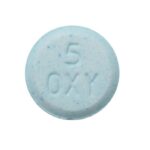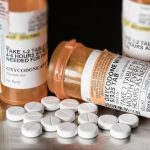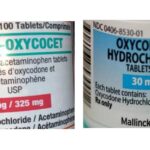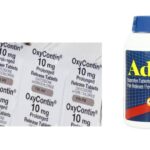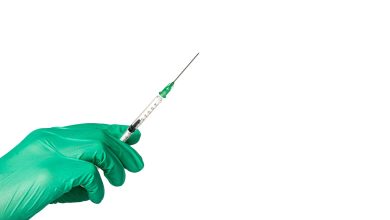Oxycotton Vs Oxycodone: 4 Things You Should Know
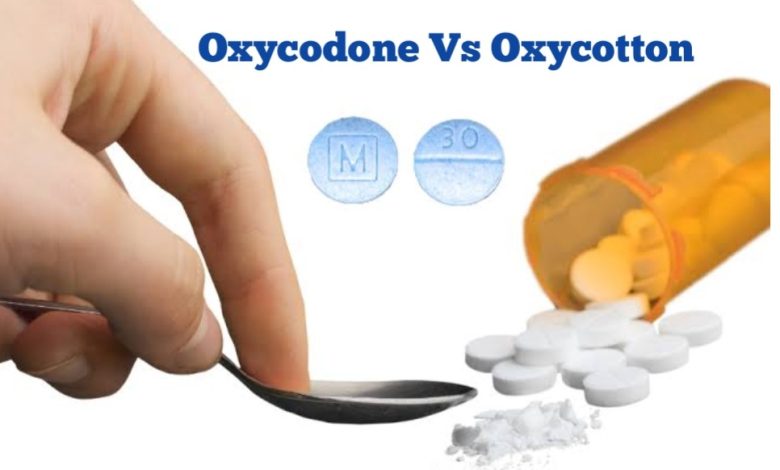
Opioid painkillers, also known as opioids, are a class of strong prescription medications used to manage moderate to severe pain. They work by binding to opioid receptors in the brain, spinal cord, and other parts of the body, reducing the perception of pain. While they can be highly effective for pain relief, opioids also carry the risk of dependence, addiction, and overdose.
These medications are typically prescribed for short-term use after surgery or injury, or for managing chronic pain conditions like cancer-related pain or severe back pain. Opioids can provide significant relief but should be used cautiously due to their potential for abuse and addiction.
The opioid crisis has become a major public health concern in many countries, including the United States, where overuse and misuse of prescription opioids have led to a significant increase in opioid-related deaths and addiction. In this article, we shall be taking a close look at Oxycodone Vs Oxycotton and the important things you should know about them.
What is Oxycotton?
“Oxycotton” is a street name for oxycodone, a powerful opioid medication primarily used to relieve severe pain. It is sold under various brand names, including OxyContin, Percocet, and Roxicodone. “Oxycotton” became popular slang for oxycodone after a hit song with the same name was released by American rapper Lil Wyte, in 2003. The song gained popularity for its depiction of drug use, specifically referencing the drug oxycodone. The lyrics describe the effects and experiences associated with oxycodone abuse and its influence on the rapper’s lifestyle.
Oxycodone works by binding to opioid receptors in the brain and spinal cord, reducing the perception of pain. However, it also has the potential for misuse and addiction due to its euphoric effects.
Other street names associated with oxycodone may include “Oxy,” “Oxycotton,” “Hillbilly heroin,” “OC,” “Killers,” “Roxies,” and “Percs.”
Drugs have street names primarily for the purpose of discretion and evasion. Here are a few reasons why street names are used for drugs:
1. Code language: Street names like “Oxycotton” serve as a form of code language that allows individuals involved in the drug trade to communicate about drugs without drawing attention from law enforcement or others who may be monitoring their conversations.
2. Avoiding stigma and judgment: By using street names, individuals can discuss drugs without openly admitting to their involvement or use. This helps to reduce the stigma and judgment associated with drug use in certain social circles or communities.
3. Concealing illegal activities: The use of street names helps to conceal the illegal activities related to drug production, distribution, and use. It makes it more difficult for authorities to identify and track drug operations.
4. Subculture and identity: In some cases, street names can also be a part of drug subculture and identity. They may reflect the language and values within certain groups and provide a sense of belonging or identification.
It’s important to note that while street names can be used to hide or glamorize drug use, they also contribute to the challenges faced by law enforcement and public health agencies in combating drug-related issues.
Can you buy Oxycotton over the counter?
No, you cannot buy oxycodone over the counter without a prescription from a licensed healthcare professional. Oxycodone is a controlled substance due to its high potential for abuse, addiction, and adverse effects. It is classified as a Schedule II controlled substance in the United States, which means it is tightly regulated and can only be legally obtained with a prescription.
To obtain oxycodone, you would need a valid prescription from a qualified healthcare provider, such as a doctor or nurse practitioner, who has the authority to prescribe controlled substances. They would assess your medical condition, evaluate the need for pain management, and determine if oxycodone is an appropriate treatment option for you.
It is crucial to use prescription medications only as directed by a healthcare professional and to follow proper medical guidance to ensure your safety and well-being. Misuse or unauthorized use of oxycodone can lead to serious health risks and legal consequences.
Oxycodone/Oxycotton Addiction
Oxycodone/Oxycottonaddiction refers to the compulsive and problematic use of the drug oxycodone. Oxycodone is a potent opioid pain-relieving medication that can produce feelings of euphoria and relaxation. However, it also carries a high risk of addiction due to its ability to create physical and psychological dependence.
Addiction to Oxycodone typically develops when the drug is used in ways other than prescribed or for non-medical purposes. Some individuals may initially be introduced to oxycodone through a legitimate prescription for pain management but eventually find themselves unable to stop using the drug even after the pain subsides. Others may misuse or obtain the drug illicitly to experience its pleasurable effects.
Signs and symptoms of Oxycodone addiction can include:
1. Behavioral Changes:
• Increased secrecy and attempts to hide drug use.
• Neglecting responsibilities at work, school, or home.
• Changes in social circle, associating with new peers involved in drug use.
• Engaging in risky behaviors to obtain or use oxycodone.
• Loss of interest in activities previously enjoyed.
• Relationship problems and conflicts with family and friends.
2. Physical Signs:
• Frequent and excessive drowsiness or sedation.
• Constricted pupils (pinpoint pupils).
• Slurred speech and impaired coordination.
• Changes in sleep patterns, such as insomnia or oversleeping.
• Poor hygiene and neglect of personal appearance.
• Weight loss or fluctuation.
3. Psychological and Emotional Signs:
• Intense cravings and preoccupation with obtaining and using oxycodone.
• Mood swings and emotional instability.
• Anxiety, irritability, or agitation.
• Increased risk-taking behavior.
• Difficulty concentrating and memory problems.
• Depression or apathy.
4. Social and Interpersonal Signs:
• Withdrawal from social activities and isolation.
• Financial difficulties due to excessive spending on obtaining oxycodone.
• Legal problems, such as arrests related to drug possession or distribution.
• Loss of trust and strained relationships with loved ones.
• Engaging in deceptive or manipulative behaviors to maintain drug use.
5. Physical Health Effects:
• Nausea, vomiting, and digestive issues.
• Constipation and gastrointestinal problems.
• Increased sensitivity to pain.
• Respiratory problems, including shallow breathing or difficulty breathing.
• Weakened immune system and increased vulnerability to infections.
• Higher risk of overdose, which can be life-threatening.
Oxycodone addiction can have severe physical, psychological, and social consequences. It can lead to overdose, respiratory depression, damaged relationships, financial difficulties, and legal issues.
It’s important to note that the presence of these signs and symptoms does not necessarily guarantee an oxycodone addiction. However, if you or someone you know exhibits several of these signs, it may be an indication of a substance use disorder, and seeking professional help is crucial. A qualified healthcare professional or addiction specialist can provide an accurate diagnosis and recommend appropriate treatment options.

